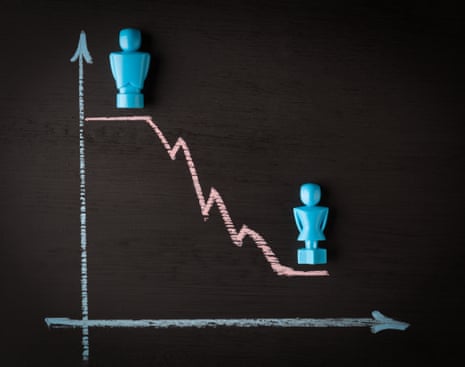Gender equality would enrich the global economy by an estimated $160tn (£120tn) if women were earning as much as men in the workplace, a study by the World Bank has found.
Equal pay, equal hours and equal participation in the workforce could lead to a global wealth jump of $23,620 a person, as well as creating knock-on benefits such as lower malnutrition and child mortality rates, said the report.
Using data from 141 countries, economists analysed the potential skills, education, training and future worth of each person in the workforce, then compared those so-called “lifetime earnings” to generate estimated global losses.
Researchers found that countries are losing 14% of their wealth, on average, simply because of gender inequality. “By looking at 141 countries, which is most of the world, we could see that – basically everywhere – women are earning less than men. So we calculated how much more wealth there would be, worldwide, if women were earning the same as men for the same wage, and the same hours worked,” said the World Bank economist and report author, Quentin Wodon.
“The important message here is that everybody would benefit from higher earnings – not just women – and thereby the wealth that gender equality would bring. Because the higher the standard of living, the lower the poverty in the household, and from the household [level] to the country [level], there are huge benefits from [attaining] gender equality.”
Globally, women are less likely to be educated, join the workforce or work for pay. If they do work, their jobs tend to be part-time, with lower wages, or in the informal sector. Data from the report shows that women comprise just 38% of a nation’s value in “lifetime earnings”, while men make up 62%. In low-income and lower-middle income countries, women account for one-third or less of that wealth.
Such disadvantages can be disastrous, said Wodon. The children of young and poorly educated women are at greater risk of being malnourished, dying before they turn five, and failing at school.
North America and Europe are among the regions accounting for the largest total losses in wealth from gender inequality, which range from $40tn to $50tn. Because many of the countries in these regions are high or middle-income, the losses are larger in per capita terms, said the report.
But gender inequality also has a profound effect in other regions where the overall cost is lower. A case in point is south Asia, where losses amount to $9.1tn – yet women make up a much smaller value of the “lifetime earnings”.
Programmes and policies that make it easier for women to get to work, access basic infrastructure and financial services, and control land could help achieve gender equality in earnings, the report said. “The world is essentially leaving $160tn on the table when we neglect inequality in earnings over the lifetime between men and women,” said the World Bank’s CEO, Kristalina Georgieva.
“This is a stark reminder that world leaders need to act now and act decisively to invest in policies that promote more and better jobs for women and equal pay at work.”
